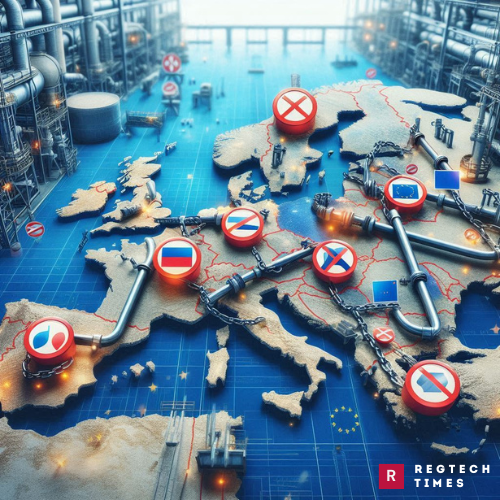In a critical juncture for European Union (EU) policy, Germany’s recent decision to block proposed sanctions targeting Russian gas has sparked intense debate and scrutiny. This development, occurring just before a crucial international peace conference on Ukraine, highlights the intricate dynamics within the EU and Germany’s domestic political landscape.
Proposed Sanctions on Russian Gas
The proposed sanctions aimed to restrict the re-export of Russian gas from EU ports and curtail financing for new gas terminals in the Arctic and Baltic regions. These measures formed part of broader efforts by EU member states to exert economic pressure on Russia, particularly in response to its ongoing aggression, notably the invasion of Ukraine in 2022.
The European Union, guided by principles of solidarity and collective security, has sought to align its member states by imposing sanctions that target key sectors of the Russian economy. Russian gas, a crucial export commodity, has been a focal point due to its significance in Europe’s energy supply chain.
Political Divisions within Germany
At the core of the issue lies Germany’s internal political discord, reflective of a coalition government comprising the Social Democrats, the Greens, and the liberal Free Democrats. While Chancellor Olaf Scholz’s administration navigates EU foreign policy, varying perspectives within the coalition have emerged prominently on the economic impact versus geopolitical strategy.
The Greens advocate for robust sanctions against Russian gas as a response to aggression, contrasting with concerns from coalition partners about potential adverse effects on German industries. This discord has hindered consensus on expanding sanctions beyond traditional military goods to include civilian products like chemicals and metalworking machinery.
Moreover, Germany’s historical balancing act between economic interests and diplomatic relations plays a pivotal role in shaping EU sanctions policy. As a key economic partner for Russia, particularly in the energy sector, Germany’s decisions carry significant weight in EU deliberations.
Economic Concerns and Industry Impact
Germany, as the EU’s economic powerhouse, faces substantial stakes in decisions impacting trade and economic relations with Russia. Hesitance to broaden sanctions reflects fears within German business sectors, where concerns over competitiveness and export revenues intersect with broader geopolitical goals.
The potential extension of sanctions to cover more civilian goods could potentially harm German businesses, particularly those reliant on exports to Russia or involved in the supply chain of sanctioned products. This economic calculus weighs heavily in Germany’s stance on EU sanctions policy, highlighting the delicate balance between economic interests and EU solidarity on foreign policy.
Impact on EU Unity and Diplomacy
The timing of Germany’s blockade is particularly sensitive, coinciding with G7 summit deliberations and efforts to forge a unified international response to Russian actions. The EU’s ability to present a united front against Russian aggression is crucial for regional stability and reinforcing its global diplomatic influence.
The failure to reach consensus on sanctions highlights challenges in EU decision-making, where unanimity among member states is pivotal for significant foreign policy measures. This setback may undermine EU credibility and cohesion in its approach to international crises, potentially complicating efforts to project a unified stance on global issues.
Moreover, Germany’s internal political divisions contribute to perceptions of EU indecisiveness in confronting external threats, undermining efforts to present a cohesive strategy on the global stage.
Challenges and Negotiations Moving Forward
Despite the deadlock, negotiations between the European Commission and German authorities continue to address concerns and potentially revive discussions on the sanctions package. The outcome will be closely monitored, shaping EU-Russia relations and EU internal dynamics moving forward.
In conclusion, Germany’s decision to block EU sanctions on Russian gas reveals a complex interplay of political, economic, and strategic considerations within the EU. As Europe navigates the fallout from Russia’s actions in Ukraine and asserts its foreign policy autonomy, the challenge lies in balancing national interests with broader European solidarity. The resolution of these tensions will shape EU policy on Russian gas and define its role in global diplomacy amid ongoing geopolitical turbulence.
The ongoing negotiations and debates within Germany’s coalition government highlight the intricacies of EU decision-making, where economic concerns often intersect with geopolitical imperatives. As Germany and the EU continue grappling with the ramifications of their sanctions policies, the outcome will significantly influence Europe’s stance on global security and its ability to respond effectively to external threats.



